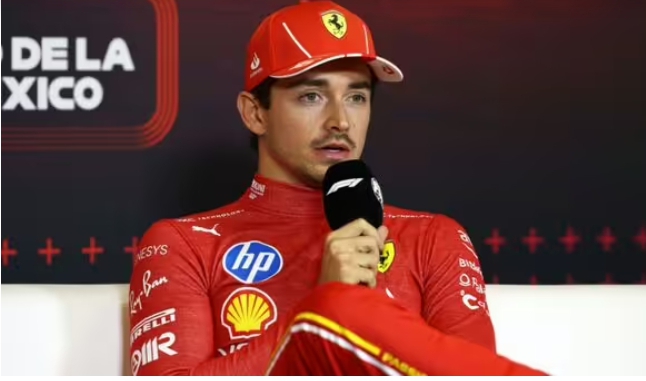After the recent Mexican Grand Prix, Ferrari driver Charles Leclerc found himself fined €10,000, half of which is suspended, for using profane language during a press conference. This penalty was issued following an intense on-track moment when Leclerc narrowly avoided a collision with the barriers while in competition with Lando Norris. Leclerc skillfully managed to regain control after a significant oversteer, but his subsequent comments drew attention from the FIA.
Reflecting on the incident during the press conference, Leclerc explained his reaction by recounting his thoughts at the time, which included an expletive. Recognizing that this kind of language is unsuitable for public broadcasts, the FIA chose to fine him rather than subject him to community service—an alternative punishment given to Red Bull’s Max Verstappen in a similar scenario. Leclerc, aware of Verstappen’s previous experience with FIA penalties, jokingly commented on his desire to avoid joining him in community service.
The FIA highlighted that Leclerc’s immediate apology and evident remorse played a significant role in determining his punishment. Unlike Verstappen, who received a more severe consequence, Leclerc’s penalty remained limited to a monetary fine. During the FIA hearing, Leclerc acknowledged his responsibility as a role model in Formula 1 and expressed regret for his lapse in judgment.
The FIA statement emphasized that Leclerc’s reaction was not as severe as previous cases and that his contrition influenced the final decision. Consequently, the stewards imposed a suspended €5,000 fine, which will only be enforced if Leclerc repeats the offense within 12 months. This decision underscores the FIA’s ongoing efforts to uphold professionalism in Formula 1, especially regarding language and behavior that reach a wide audience.
This incident underscores the heightened scrutiny around drivers’ conduct, especially in high-pressure moments. The FIA’s approach to addressing such incidents reflects its broader commitment to maintaining standards while acknowledging individual drivers’ accountability and response.

